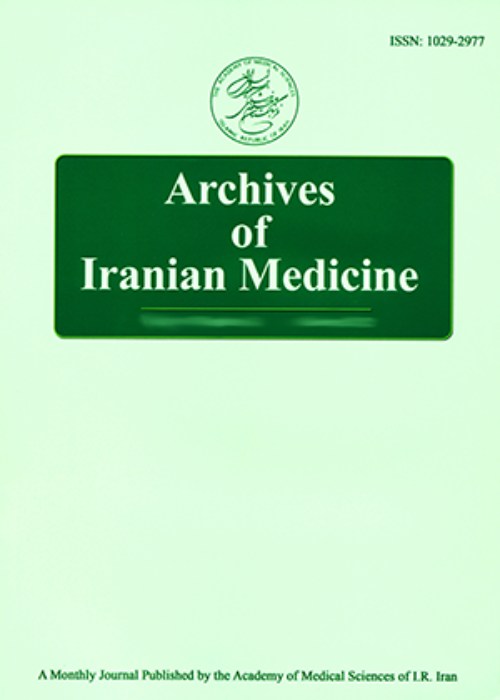Expression of p53 in colorectal carcinoma: correlation with clinicopathologic features
Author(s):
Abstract:
Background
The p53 gene mutation is closely related to carcinogenesis in most malignant diseases. The main function of wild p53 protein is to maintain the integrity of genes by detecting mutations and preventing the division of cells with damaged DNA. The mutated form of p53 protein is overexpressed due to an extended half-life and can be easily detected by immunohistochemistry.Objective
To estimate the frequency of p53 protein overexpression in colorectal carcinoma and its correlation with some clinicopathologic variables.Methods
One hundred paraffin-preserved colorectal carcinoma samples were collected randomly from patients undergoing tumor resection from April 1995 through April 2001 in Omid Hospital, affiliated to Mashhad University of Medical Sciences, Mashhad, Iran. The overexpression of p53 protein was studied using a monoclonal antibody (clone DO-7; Dako). The number of cells stained were classified semiquantitatively as (–): <5% positive cells, (+): 5 – 25% positive cells, (++): 25 – 75% positive cells, and (+++): >75% positive cells. Clinicopathologic data including gender, age, tumor location, histologic type, and stage (Astler-Coller) were collected from the files maintained at the Department of Pathology. The correlation between p53 protein overexpression and each variable was evaluated using Chi-square analysis. Results
p53 staining was positive in 59 of 100 specimens. Out of these 100 specimens, 16 were weekly (+), 16 moderately (++), and 27 intensely (+++) positive for p53 protein over-expression. There was no significant correlation between p53 staining and gender (P = 0.34), age (< 40 vs. ≥ 40 yr; P = 0.74), site of tumor (right vs. left colon and rectum; P = 0.26), pathologic type (mucinous vs. nonmucinous; P = 0.63), and stage of the disease (P = 0.12). Conclusion
Considering the p53 protein overexpression in a relatively high percentage of patients, it seems that p53 mutation plays an important role in development of colorectal carcinoma. There was no significant association between p53 protein expression and some common clinicopathologic variables such as age, gender, site of tumor, pathologic type, and stage of the diseaseLanguage:
English
Published:
Archives of Iranian Medicine, Volume:10 Issue: 1, Jan 2007
Page:
38
magiran.com/p594307
دانلود و مطالعه متن این مقاله با یکی از روشهای زیر امکان پذیر است:
اشتراک شخصی
با عضویت و پرداخت آنلاین حق اشتراک یکساله به مبلغ 1,390,000ريال میتوانید 70 عنوان مطلب دانلود کنید!
اشتراک سازمانی
به کتابخانه دانشگاه یا محل کار خود پیشنهاد کنید تا اشتراک سازمانی این پایگاه را برای دسترسی نامحدود همه کاربران به متن مطالب تهیه نمایند!
توجه!
- حق عضویت دریافتی صرف حمایت از نشریات عضو و نگهداری، تکمیل و توسعه مگیران میشود.
- پرداخت حق اشتراک و دانلود مقالات اجازه بازنشر آن در سایر رسانههای چاپی و دیجیتال را به کاربر نمیدهد.
In order to view content subscription is required
Personal subscription
Subscribe magiran.com for 70 € euros via PayPal and download 70 articles during a year.
Organization subscription
Please contact us to subscribe your university or library for unlimited access!


